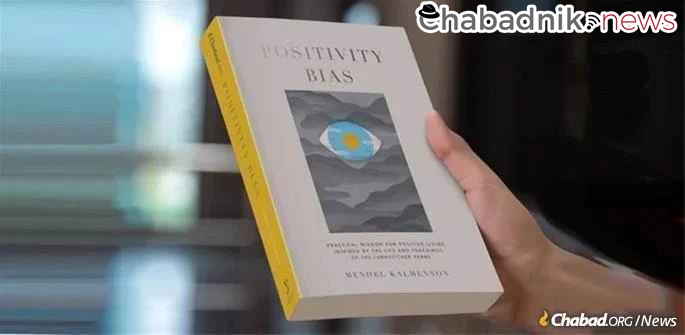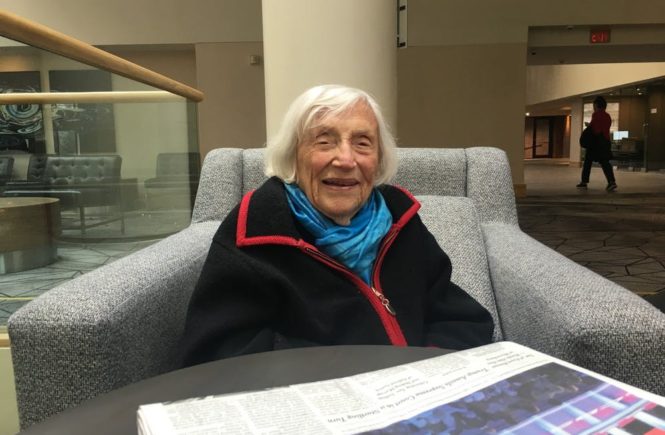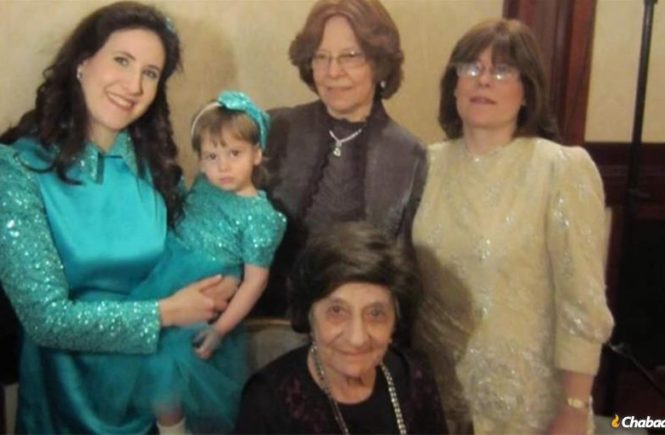Countless lives transformed by the Rebbe’s advice on positive living

Sometimes, a book will speak to a reader and lead them on a path they never envisioned. It is unusual, though, for a book to do so for large groups of people.
Yet that’s exactly what happened in the three years since Positivity Bias by Rabbi Mendel Kalmenson was first released in English. Based on the teachings and wisdom of the Rebbe—Rabbi Menachem M. Schneerson of righteous memory—the book has been translated into several languages and will soon be released in French, Greek, Italian, Russian, German and Hebrew. It has already been released in Spanish and Portuguese.
Kalmenson said the response to the book has been “overwhelming.”
“When you write a book about ideas that are relevant to people’s lives, you never know how it will be received or if it will touch people’s lives. The best feedback I get,” he says, “is when people tell me how transformative the book has been.”
Among those who were impacted were Erez Safar, who had received a copy of the book from Rabbi Eli Bachman, the Chabad-Lubavitch emissary to the University of Maryland, where Safar is an alumnus. Safar began the book and was particularly taken with the Rebbe’s response to a letter writer who wrote about his hardships and troubles despite leading a very blessed life.
As Kalmenson noted, in one particular point in the book, “the Rebbe advised that words and feelings of gratitude that we express to G‑d for the blessings we already have in our lives actually become the vessels for new blessings to flow to our lives.”
“When one does not recognize the explicit good bestowed on them from Above …,” wrote the Rebbe, “is it any wonder that [more] are not forthcoming from Above in other matters.”
Said Safar, “A year-and-a-half later, my mother passed away, and I remembered the book and that letter, and I launched two projects, ‘Don’t Block Your Blessings’ and ‘Light of Infinite,’ ” . The former asked people to share stories about how they are seeing the blessing in their lives. Almost immediately, Safar said, people began posting videos. The Don’t Block Your Blessings initiative has morphed into an online festival hosting tens of speakers from pop culture to share their blessings with an online audience.
The Rebbe would often rephrase negative statements into “a not positive” construction, noted Safar. For example, rather than referring to an animal as “unkosher”, the Rebbe would use the term “not kosher”. Safar, a Torah and kabbalah columnist, said that “the fact that the Rebbe took positivity to such an extreme is just inspiring. [And a reminder] to be so aware and mindful of how we talk, and how we can manifest our own positivity.”
Today, Safar is writing a book of Torah commentary and the festivals that focuses on positivity and blessings.
“If you look at Instagram, people are sharing positive messages in their stories because that’s what they want to hear—that’s the message people want in their lives,” he said. “The more positive you are, the more you will bring those things into your life; and the more negative you are, the more negativity you will bring into your life.”
Dassi Berkowitz chronicled her own journey from writer to life coach as a result of reading the book earlier this year. She explained that she felt “stuck” at her job and that things were just not going the way she wanted them to.
Then she read Positivity Bias, and the story of a group of Jewish women who were “stuck” in an airport due to a blizzard who were told by the Rebbe that a Jew is never stuck and wherever a Jew is there is a divine purpose. This message motivated them to reach out to women they met in the airport to inspire them to light Shabbat candles each week.
“Reading this,” says Berkowitz, “I realized I was exactly where I needed to be. There was a purpose for everything in my life.”
It also gave her the push she needed when the time came to make a career change. “I now get to spread positive messages, coach others to live life to its fullest and do what they love as well.”

Particularly Meaningful in an Angst-Filled World
According to Kalmenson, the book is particularly meaningful in our current post-pandemic, strife- and angst-filled world.
“I think a certain sense of the security, stability and trajectory of society and history were majorly disrupted by Covid, and I think it is precisely in these periods of disorientation, disruption and deviation that one tends to lose their sense of control on life and the future.
“And then,” he continued, “one’s perspective on the state of the world and one’s perspective on the state of their personal life can somehow be skewed and shaken. But the reality is, the only things in life we can control are not circumstances or events but our reactions to those events and circumstances.”
That was also a key takeaway from a 2019 address by Rabbi Haskel Lookstein, rabbi emeritus of Congregation Kehillas Jeshurun in Manhattan, N.Y., who called Positivity Bias a “very important book.”
He notes that when the Lubavitcher Rebbe was asked how he could have such a positive attitude given all the things he went through in life—including living through pogroms, two world wars, the annihilation of European Jewry by the Nazis, the force exile of his father and the fact that he never had children—the Rebbe said he “chose to look at life in a positive way.”
“It’s a lesson for us,” said Lookstein. “Some things in life we have no control over, but how we choose to look at life affects how life is.”
Since the book’s release three years ago to mark the 25th anniversary of the Rebbe’s yahrzeit, Kalmenson has addressed groups of people across the globe from Finland to Australia. The book was also used as part of a course produced by the Jewish Learning Institute during Covid, which was taught and highly attended at hundreds of Chabad centers worldwide.
“One of the central themes of the book is to transform every challenge into an opportunity—to see the potential and purpose in every predicament,” he said, noting that “just one paradigm shift can change one’s perspective on life.”
And that’s exactly what happened for Safar, Berkowitz and dozens of others, said the author.
“When people who read the book say it has changed their lives for the better and they have actually made concrete and positive changes with great impact like Erez and Dassi, that’s a testament to how impactful the Rebbe’s teachings on positivity are,” he said.
“Ultimately, we all go through a period when we work on something or expect something to happen and invest all our hopes, and it falls through. Those are the moments and circumstances that help mark how far we’ve grown on our positivity and faith-based journey.”




